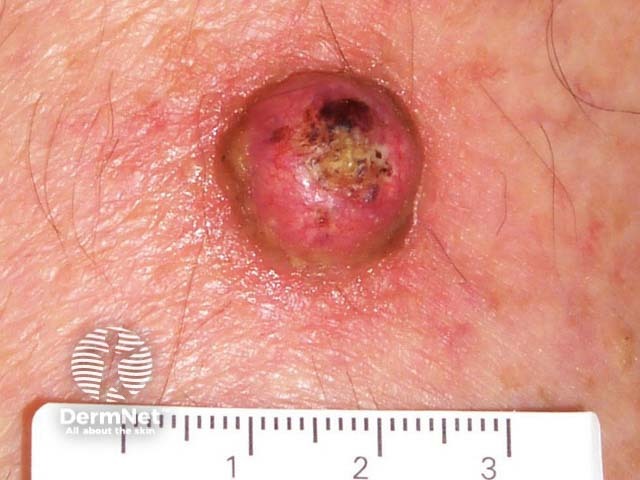Squamous cell carcinoma (SCC) is a common type of skin cancer that starts in the squamous cells, which make up the outer layer of the skin. It often appears as a firm, red bump, a scaly patch, or a sore that doesn’t heal. SCC usually develops in areas that get a lot of sun exposure, like the face, ears, neck, and hands, but it can also occur in other places on the body. People who have lighter skin, a history of sunburns, or use tanning beds are at higher risk.
Fortunately, SCC is typically treatable, especially when diagnosed early. Treatment options may include surgery to remove the cancer, radiation therapy, or topical medications. Regular skin checks and protecting your skin from the sun can help lower your risk of developing SCC. If you notice any changes in your skin, such as new growths or sores that don’t heal, it’s important to talk to a healthcare professional right away. Early detection can make a big difference in treatment success.

